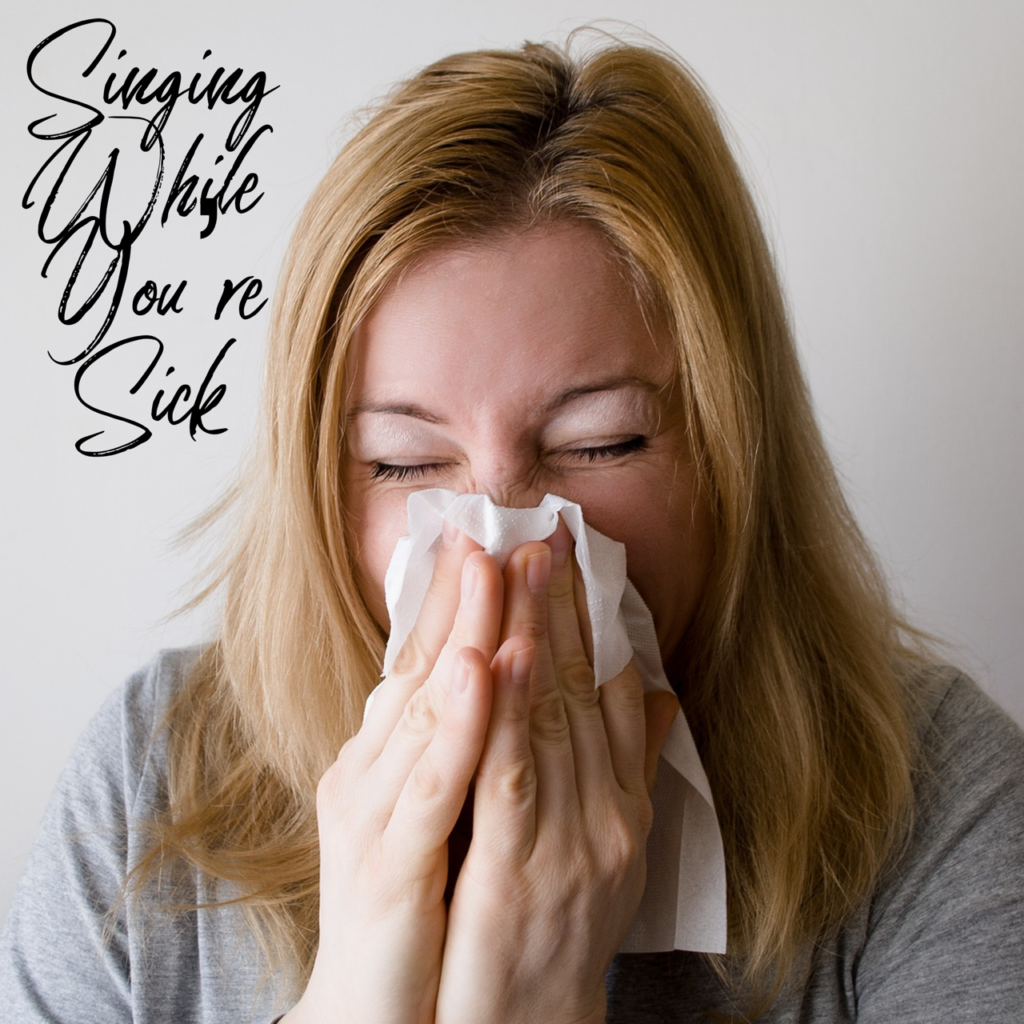Written by Metro Music Makers instructor Sarah Cauthen
I don’t know about you, but I’ve been anxiously awaiting the arrival of fall.
Reasons I LOVE fall:
- Comfy sweaters
- Fall spices
- Watching the leaves turn
But as a singer, I also DREAD fall, because I basically remain “under the weather” vocally from mid-October until January. It’s miserable. And if you know anything about the music world, holiday seasonal singing is the bread-and-butter of your fiscal year. I truly can’t afford to be sick.

Despite my pipes being… less than stellar, I have to sing. So, here are my go-to coping strategies for singing while sick:
- Limit vocal activity.
The old wisdom used to be complete vocal rest — not uttering a single sound when you fell ill and began to lose the sparkle from your sound. Not anymore. Even opera superstar Renée Fleming acknowledges that this is no longer necessary. What you can and should do is speak normally when necessary, and rest your voice when possible. Whispering is actually worse for your vocal folds than speaking normally, so don’t think you’re doing yourself any favors by trying it. (It also goes without saying that you should definitely not being shouting, cheering, screaming, or even singing bombastically if you are worried about losing your voice… but I said it anyway!) - Sleep.
Your body heals itself at night, so hit the hay early to help speed recovery. - Hydrate.
Your voice is made up of itty bitty, teeny tiny folds of tissue and muscles. When your body is dehydrated — so is your voice! - See a doctor.
Most of us avoid seeing a doctor for minor stuff like the common cold, but if you have any accompanying symptoms like hoarseness, vocal fatigue, or especially any pain when you speak or sing, I would highly recommend seeing an ENT and discussing your upcoming performance needs.
That’s the core of the recovery process. Now, I do have a few personal tips to share:
- Cough prevention.
Coughing can really strain those delicate muscles surrounding your vocal folds, as well as injuring the folds themselves. Try cough drops or cough syrup (both in moderation) to help limit excess coughing. Mentholated drops are the best, but be careful as the menthol can have a drying effect — see #3 above. - Steam.
It’s a commonly used trick in the singing world to inhale *warm* steam — NOT hot! Hot steam would scald your vocal folds in the same way hot water scalds your tongue. But warm steam can act like a warm compress for a tired voice. I always use filtered water, and I actually have a Vicks product meant for inhaling the steam, but you can easily make your own with a bowl. Cover the bowl with a big towel and just duck your head under there to create a miniature steam room. - NO throat clearing.
This one is hard, even for me, but sometimes phlegm is our friend and is there to protect us. Plus, it forces your poor, tired little cords to slam themselves together repeatedly — not good. Try your best to clear as little as possible. Instead, try a gentle cough (just a puff of air passed over the vocal folds to make an “AH” sound) or a lip buzz.
Last but not least, this is my best advice. If you absolutely must sing…
***Only healthy singing!***
Wait until you have your full voice back to go full-on Gaga in the car or shower. Save those indulgent singing moments for when you are back to 100% vocal health. Until then, sing only in the supported, relaxed and open way that your voice teacher would be proud of!
